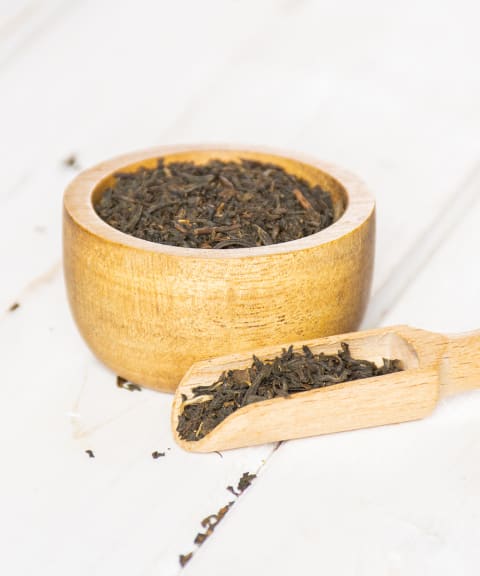In the excerpt below, glimpse the fascinating science behind intermittent fasting and the “hidden benefits” taking place at a cellular level to affect your long-term health. Get started on Cole’s four-week program by buying your own copy of his book here. This is especially true when you take into account the onslaught of stressors cells are exposed to in modern life. Intermittent fasting has been shown to improve cellular function, increase the healing of stem cells, and improve resilience against a wide range of stressors, including metabolic, oxidative, traumatic, and proteotoxic stressors (which include things like damaged proteins). Autophagy is important no matter our age, but it’s particularly critical as we get older since aging hinders our ability to clean our old cells and proteins, and all this debris can start to build up. Reductions in autophagy have been linked to a range of diseases. The authors of one study wrote that autophagy’s main job is to protect us from anything from infections and cancer to neurodegeneration, accelerated aging, and heart disease. Whenever I talk about fasting to live longer, I’m often met with a lot of raised eyebrows and skeptical looks. But the truth is, until about a decade ago almost all studies on intermittent fasting focused on aging and longevity—and most of them concluded that fasting can, in fact, increase life span. Need an example? One of the first studies on fasting1 reported that the life span of rats increased by as much as 80% when they were put on a fasting plan where they were given food only every other day. In a study on worms, a fasting diet increased life span by 40%; in another on male mice on an alternate-day fasting program, they observed an increase in longevity. OK, but rats and worms are not humans. Well, there is also substantial evidence that fasting increases longevity in humans as well. For starters, it’s known to prevent many age-related diseases, including the top causes of death. There are many theories as to why fasting has such a positive impact on life span. One has to do with “blue zones,” such as the one on the island of Okinawa. The isolated population there typically maintains a regimen of intermittent fasting and has extremely low rates of obesity and diabetes, as well as extreme longevity2. As we already know, extended fasting produces ketones; well, ketones also regulate the expression of specific molecules and proteins that play a known role in aging. A few examples of these include NAD+ and sirtuins3. You may have heard of NAD+ because there are a growing number of nutritional supplements said to promote NAD+ and, subsequently, a healthier cellular aging process. How, you ask? NAD+ levels decline as you age, and, as is explained in an article published in Trends in Cellular Biology4, that “may be an Achilles’ heel, causing defects in nuclear and mitochondrial functions and resulting in many age-associated pathologies.” It’s thought that restoring NAD+ levels, especially as they decline with age, may ameliorate age-related issues and counteract age-related diseases. NAD+ does this by supporting cellular energy and helping you maintain healthy DNA, but it also does this by activating sirtuins. I’m at risk of diving too deep into the science of aging, but sirtuins are a class of proteins that occur in all types of living organisms—everything from yeast to bacteria to mammals. In humans, sirtuins play a key role in the body’s cellular response to stressors, including oxidative stress and DNA damage. Some studies have pointed to the idea that sirtuins could play a direct role in extending life span. The good news is that NAD+ supplementation isn’t the only way to increase the level of sirtuins. In fact, physical activity and dietary changes—including fasting and ketogenic diets—have been shown to increase sirtuins. Even specific compounds, such as curcumin5, are being studied for their ability to increase sirtuin levels. Another longevity pathway that researchers are exploring is mTOR. Increased mTOR is associated with accelerated aging and age-related disease. The mTOR pathway is especially stimulated by protein consumption. Both fasting and fasting-mimicking diets like the ketogenic diet have been shown6 to be beneficial at balancing mTOR. Importantly, intermittent fasting has also been shown to stimulate mitophagy, which is essentially just the autophagy of the mitochondria. Finally, fasting has also been shown to inhibit pathways that create proteins, pressing pause on creating new material so that the body can conserve energy and resources while it cleans house. You don’t want your cells to always be dividing and replicating because that has been linked with an increase in oxidative stress. Research has also confirmed that when you are constantly snacking, overeating, or living a sedentary lifestyle, these beneficial pathways are left untapped or even suppressed. This is why giving yourself periods of time without food, regardless of the specific protocol, appears to be overwhelmingly beneficial. ● 1 cup hot water ● ¼ tsp. vanilla extract ● 1 tbsp. grass-fed ghee ● 1 tbsp. coconut oil or MCT oil ● Keto sweetener to taste Devon’s first book, Earth Women, is coming soon. To learn more, join the mailing list, and receive updates, head to www.devonbarrowwriting.com.



